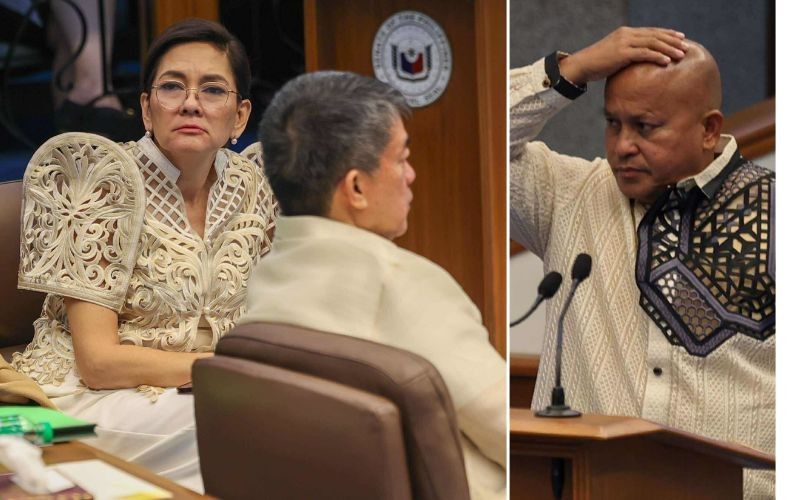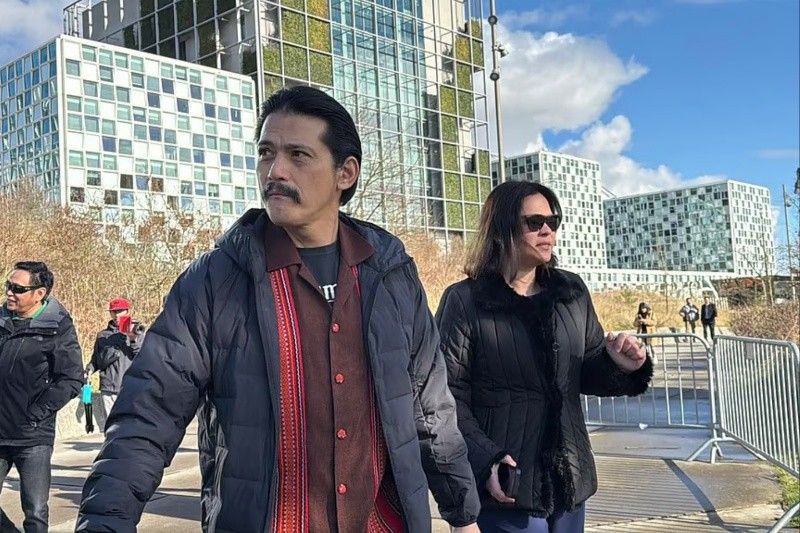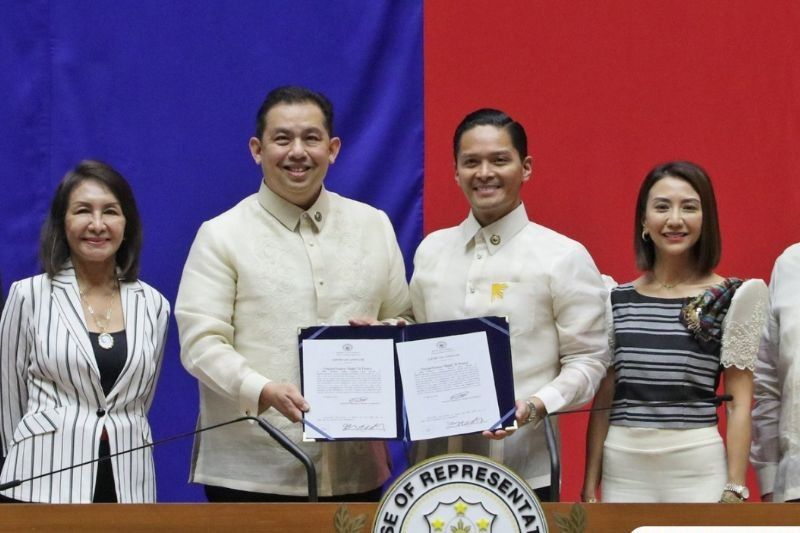
Upgrade to High-Speed Internet for only ₱1499/month!
Enjoy up to 100 Mbps fiber broadband, perfect for browsing, streaming, and gaming.
Visit Suniway.ph to learn
Janvic Mateo - The Philippine Star
April 9, 2025 | 12:00am
MANILA, Philippines — A French lawyer with experience in defending suspects on trial before the International Criminal Court (ICC) has joined the defense team of former president Rodrigo Duterte.
An April 7 court filing released yesterday showed that international criminal law expert Dov Jacobs had been tapped to serve as associate counsel to Duterte’s defense team.
He will work alongside British-Israeli lawyer Nicholas Kaufman, who was earlier confirmed to be Duterte’s lead counsel in the ICC proceedings.
It was unclear if more lawyers would be tapped by the defense, but Kaufman confirmed last week that his core team is already complete.
Jacobs, an accredited ICC lawyer, was part of the defense team of former Ivory Coast president Laurent Gbagbo, who was charged with crimes against humanity and later acquitted by the ICC’s trial and appeals chambers.
Jacobs is also part of the defense team of Mahamat Said Abdel Kani, a former general of the Central African Republic, whose trial is ongoing over charges of war crimes and crimes against humanity filed against him before the international tribunal.
Based on his profile published on a personal website, Jacobs was described as an expert in international law and international criminal law. He is assistant professor of public international law at the Netherlands and has taught in French universities.
He holds degrees from the King’s College in London, Paris I Panthéon-Sorbonne, Paris II Panthéon Assas, Sciences Po in Paris, as well as a doctorate at the European University Institute in Florence.
Earlier, on his LinkedIn page, Jacobs shared his views regarding the arrest and subsequent turnover of Duterte to the ICC.
He noted that the former president was deprived of his right to stand before a domestic judge, “which raises questions as to the respect of his rights under Article 59 of the Rome Statute.”
“The ICC has historically been reluctant to provide adequate monitoring of domestic conduct and remedies for violations of Article 59, as I experienced first-hand in the Gbagbo case, setting a high standard for acknowledging any abuse of process in the treatment and surrender of a person to the Court at the domestic level,” he wrote.
“However, this will still likely be raised in the early stages of the proceedings, and rightly so,” he added.
Under the said provision, an arrested person must be brought to a “competent judicial authority” to determine if his rights have been respected during the process.
Others, however, argued that the Philippines is not bound by this provision as it is no longer a party to the Rome Statute, the treaty that established the ICC.
The Marcos administration also cited Republic Act 9851 or the Philippine Act on Crimes Against International Humanitarian Law, Genocide and Other Crimes Against Humanity, which allows Philippine authorities to “dispense with the investigation or prosecution of a crime … if another court or international tribunal is already conducting the investigation or undertaking the prosecution of such crime.”
Jacobs noted that the “question of the ICC’s exercise of jurisdiction in the Philippines situation will necessarily be discussed extensively in the preliminary phase.”
Kaufman earlier bared plans to question ICC’s jurisdiction on the case ahead of the confirmation of charges hearing, which was provisionally scheduled on Sept. 23.
Kaufman has also asked ICC judges to limit the documents that may be accepted as proof of identity of victims seeking to participate in the proceedings.
In a four-page filing dated April 7 and released yesterday, Kaufman said the ICC Pre-Trial Chamber I handling the proceedings should “insist on the production of a national identity card and/or a passport containing an up-to-date photograph.”
“In the absence thereof, the Defense submits that the Pre-Trial Chamber should require those identification documents accepted in the staggered fashion mandated by the social security system of the Republic of the Philippines,” added the filing.
Kaufman said limiting the range of accepted identity documents “enhances the reliability of the identity verification process and significantly reduces the risk of fraud.”
In its earlier filing, the ICC Registry proposed a list of identity documents that may be submitted by victims who want to participate in the proceedings.
These include IDs and certificates issued by various agencies, including the Philippine Statistics Authority.
But Kaufman said the use of “varied and insufficiently verified identity documents could lead to misidentification, double-counting and the inclusion of false victims.”
For ICC assistant to counsel Kristina Conti, one of the lawyers representing the drug war victims, the observations submitted by the defense “are out of touch and harsh, obviously intended to exclude majority of the victims of Duterte’s ‘war on drugs.’”
“Their insistence on the use of national IDs is unrealistic, with the obtention and issuance of the cards plagued with consistent issues of delay. Their suggestion to produce passports is anti-poor, as only the socially mobile have the luxury to avail of cross-country travel,” she said.
“Limiting the list of possible proofs of identity only discourages victims unnecessarily, almost heartlessly,” she added. — Daphne Galvez

 2 months ago
15
2 months ago
15



